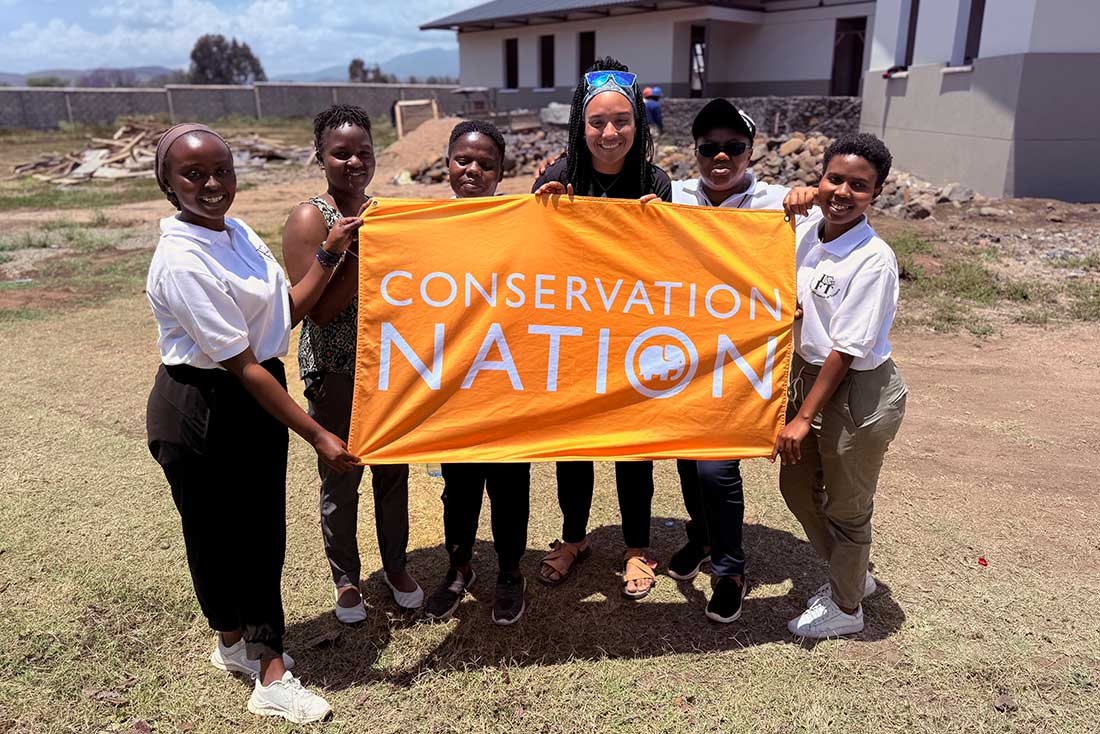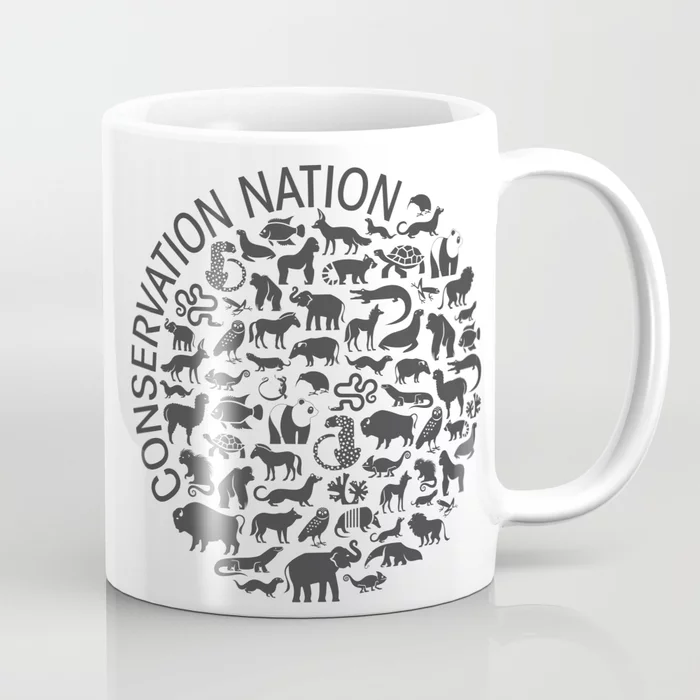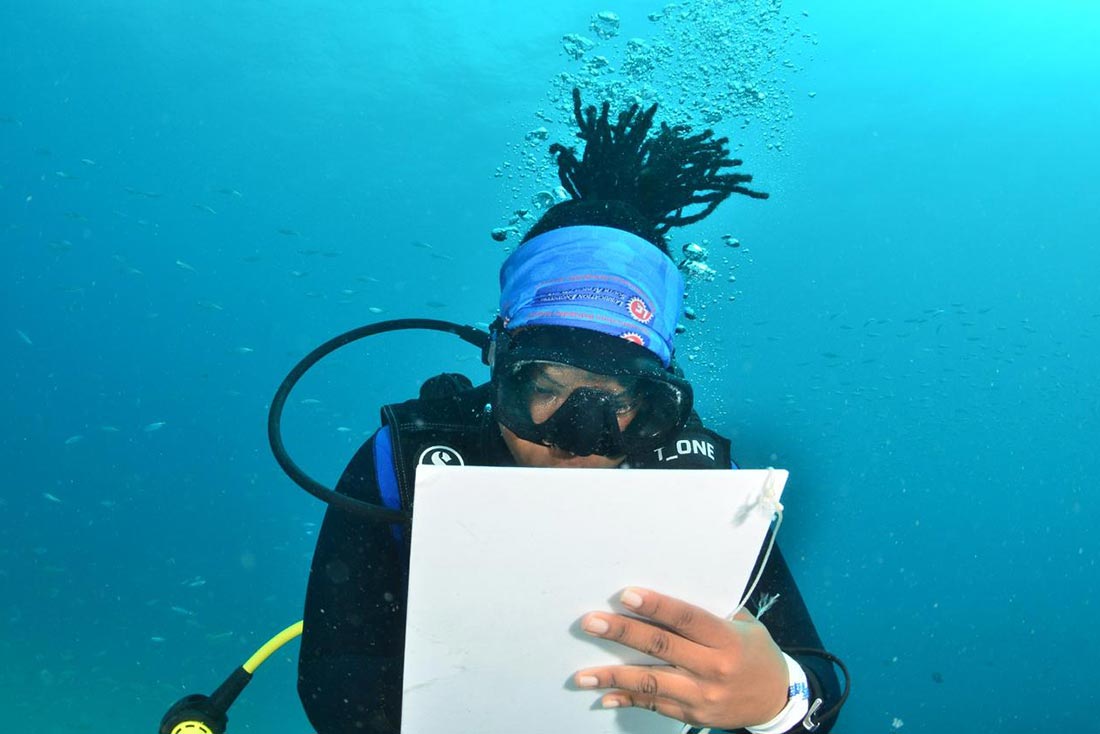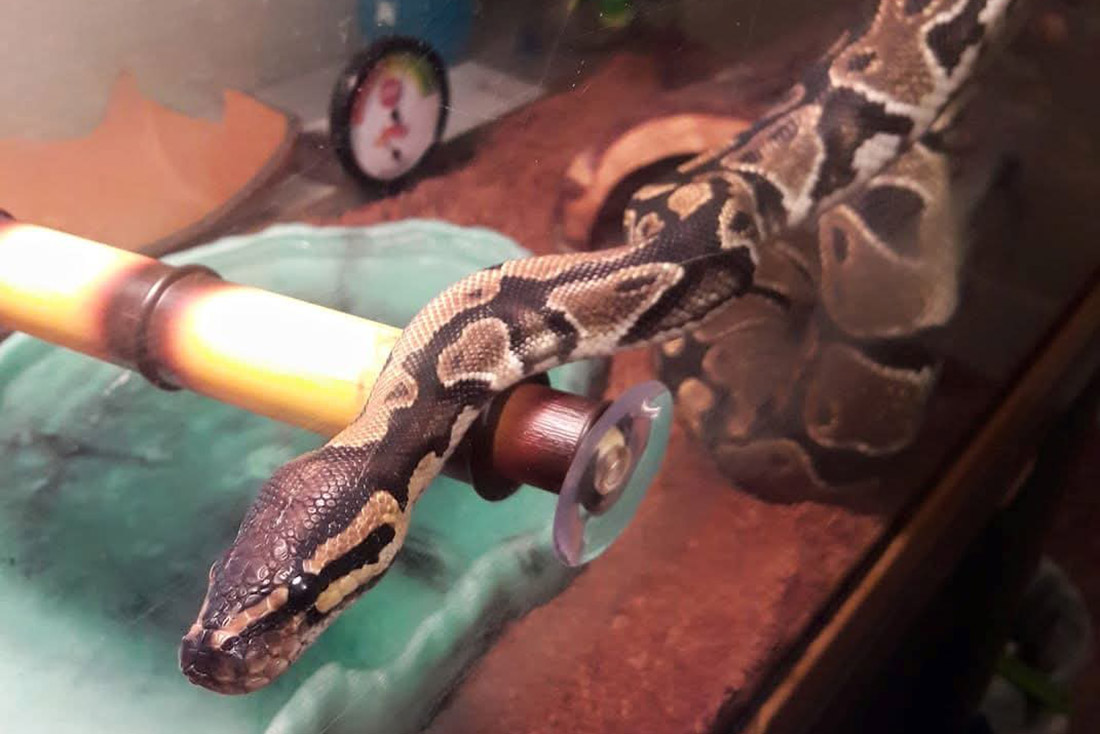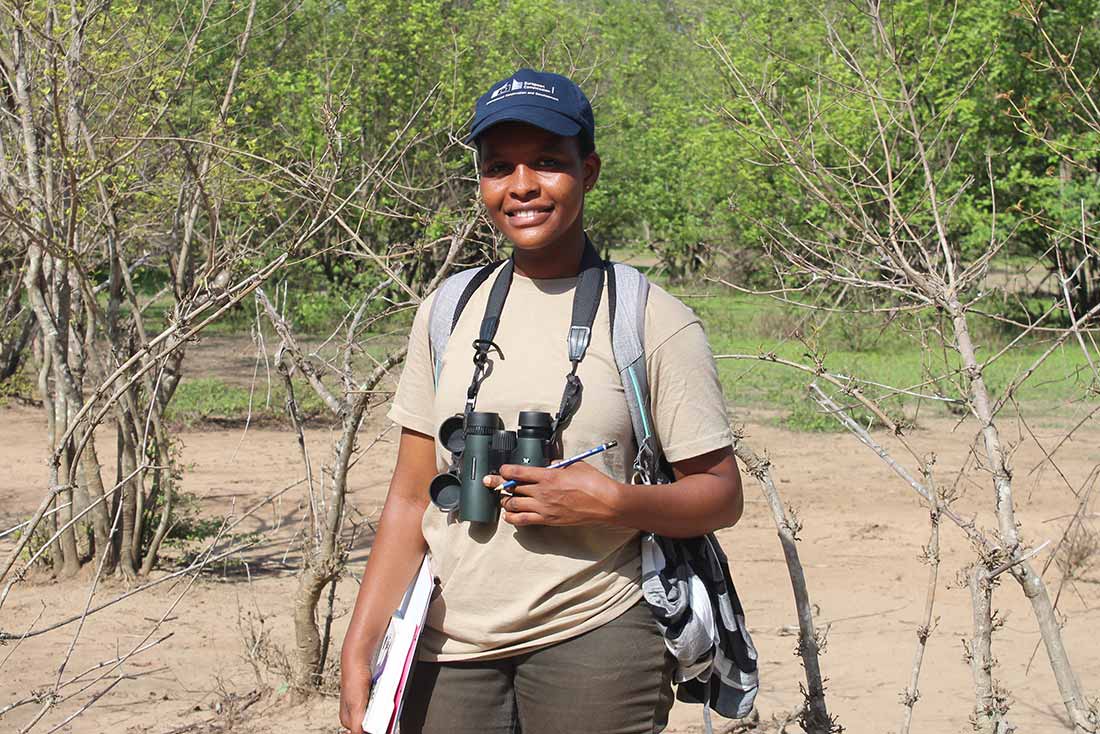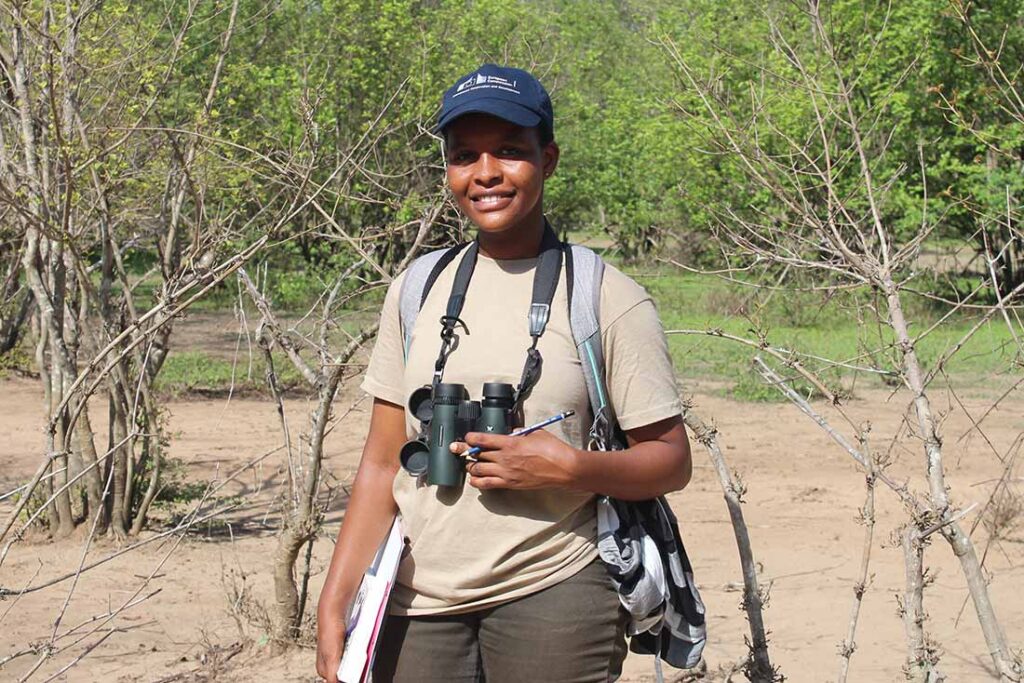Veronica Dandzo-Adzagudu is one of Conservation Nation’s 2024 conservationist grant recipients. She is a Ghanaian early-career conservationist passionate about saving threatened species from extinction. Veronica holds a bachelor’s in natural resources management from the Kwame Nkrumah University of Science and Technology and a master’s in environmental management from the University of Sterling.
Veronica is currently the head of fundraising and research at the Threatened Species Conservation Alliance in Ghana. She previously worked as a project support officer at the West Africa Primate Conservation Action organization. While there, she analyzed annual primate monitoring data and helped implement several projects, including the Econobio project in the Ankasa-Tano Community Resource Management Area. In the past, Veronica also participated in a camera-trapping project to examine the impact of a large-scale tree-planting initiative on mammal diversity in Scotland. Additionally, she has implemented a socio-ecological project to assess the threats and population of four critically endangered vulture species in Ghana’s Mole National Park. Veronica has received multiple funding awards, including a Wilson Ornithological Society Research Grant and a HawkWatch International Global Raptor Research and Conservation Grant.
Conserving a Newly Discovered Population of White-Thighed Colobus Monkeys
Veronica’s project will focus on conserving critically endangered white-thighed colobus monkeys in Ghana. This species has faced an 80% global decline over the past 30 years and is locally extinct in 50% of Ghana’s protected areas due to threats like hunting and habitat loss.
Veronica will conduct a population assessment on a newly discovered population of white-thighed colobus monkeys in the upstream riparian (river bank) section of the Tano River. Her study will include a four-month ecological survey using camera traps. She will also distribute a questionnaire to 150 community members to evaluate their knowledge and use of her focal species. Her research will serve as a baseline for long-term monitoring as it will provide data on local threats to the species, population demographics, and distribution. The results will inform conservation interventions, such as habitat rehabilitation, and highlight regions for targeted awareness and behavioral change campaigns. Ultimately, Veronica hopes her study will prevent this previously unknown population of primates from local extinction.

